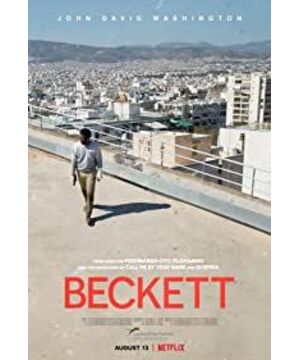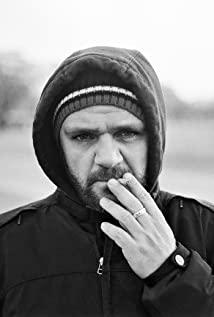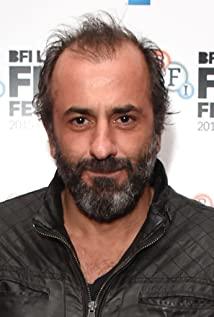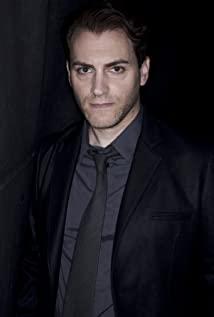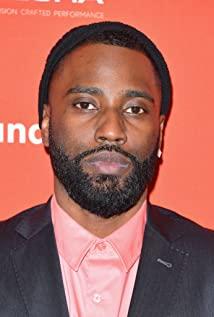In a wave of increasingly homogenous action, revenge, and super-English films, "Doom Holiday" (also known as Beckett), a simple but not simple film, took a different approach and played Hitchcock. The theme of "the wrong person" from seven to eighty years ago.
Ordinary people who appear in the wrong time and scene without superb martial arts skills or full firearms experience. They are just mortal and scarred, but still gritted their teeth to fight for their own destiny. This is absolutely not It is a "cool film" in the usual sense, but it is this almost tragic core of the story that gives this film its unique charm.
Spoiler alert
Hitchcock’s golden age films particularly liked the concept of "wrong person", which was used for the first time in 1934 in "The Thirty-Nine Steps" to 1935 in "Thirty-Nine Steps" in 1935. The escape (the "Escape from Prison" in 1958 is hard to say without reference) until the "North by Northwest", which was hunted down by heaven and earth in 1959.
The wrong person appears at the wrong time and in the wrong place. Therefore, the drama of being chased by the villain or the police is actually very interesting, because it is different from the "killer", "assassin", "agent" and other people with special skills, wrong People usually tend to have ordinary and wronged attributes, but when faced with murderous intent, they can only fight hard to escape.
"Holiday of Doom" generally follows the setting of "wrong person", so Beckett, played by Washington, has no superb skills. His escape is often embarrassed and helpless, and some of them are even more effective in other action movies. The ridicule, such as the unsuccessful motorcycle of a passerby, or thinking that he can slide off the car handsomely, in fact, he can only rub it off. After all, it is difficult to become the protagonist of an action movie without wearing a smooth dress.
On the basis of the "wrong person" frame, the film adds a certain element of political thriller, which is not really smart. After all, most directors have a relatively simple control and understanding of this aspect, and sometimes they want to ridicule. However, I only showed my own naivety. Fortunately, the film didn't focus too much on this. The audience probably only needs to know that everyone doesn't want Beckett to get better.
Usually, in stories like "wrong person", the protagonist can finally wash away the grievances, and can often mess up the activities of the bad guys by mistakes. Although the plot only looks at the plot, it is roughly the same. Beckett beats the American embassy staff. He shot the Greek villain and jumped down to prevent the villain from fleeing to save the child.
What is different is that the whole film is shrouded in a strong atmosphere of tragedy.
The death of Beckett’s girlfriend April is naturally a haze that runs through the film. After a short sweetness, there is a sudden parting. He reported the sad news to the old man. Before he could see the dead girlfriend, he had to start inexplicably fleeing. After finally being protected in the U.S. Embassy, I saw my girlfriend for the last time, but I didn't expect to face government officials again.
However, outside of this context, I actually feel that what really makes this film show the most melancholy is the scarred body of the protagonist.
In the first act of the escape, a shot in the arm + the sequelae of a car accident + sleeping pills. I thought that the three-layer debuff was already the most desperate state of the protagonist. I didn't expect that the back was like a roller coaster, the fingers were twisted by the police and the body was scratched by a knife. In many places, tired of long-distance running, shot again in the waist, and finally jumped a few floors...
With such a scarred body, what they have to face is the seemingly ubiquitous pursuit of soldiers. They come from factions with different political opinions, from the vicious mafia, and from the US government that wants to confuse the pond to stand on the sidelines.
It is undoubtedly absurd for Beckett to fight the world, but it is this sense of weakness and powerlessness that makes Beckett's escape appear so bloody, heavy and sad. There is a scene in the film where he walks among the parade of citizens, thugs Confronted with the police, and Beckett was at a loss as to where to go. Then, he chose to use almost suicide to prevent the villain from absconding.
Maybe it's weak, or maybe a person won't do much under the tide of the times, but if an ordinary person chooses to be a good person and chooses to do just things, he is just as great.
However, when Beckett looks at the caution in his hands, don't forget that all these things happened because of your fatigued driving.
View more about Beckett reviews


